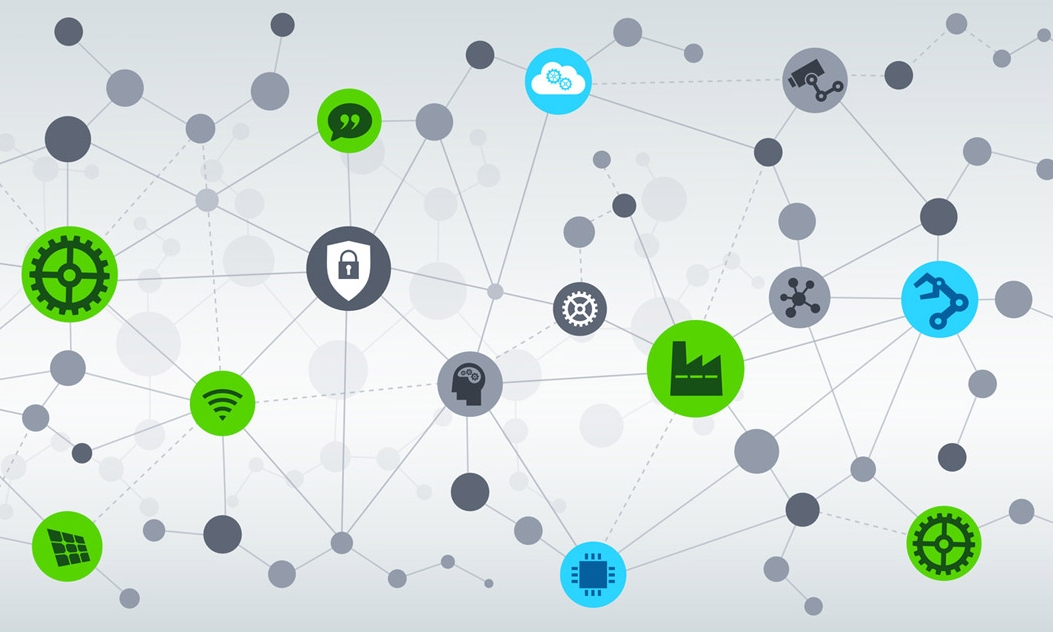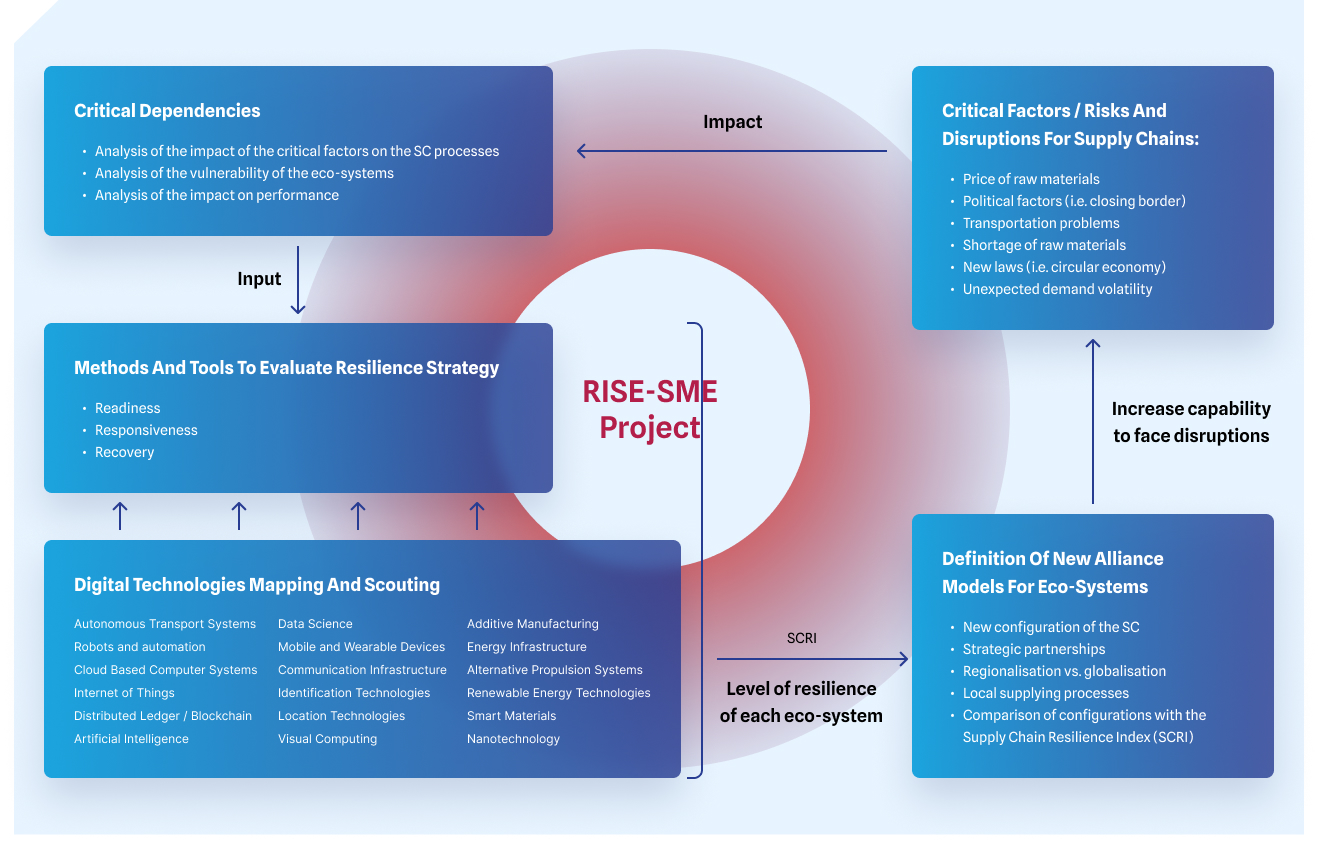Within the European research project RISE-SME, the aforementioned dilemma of recognizing the importance of increasing the resilience of SMEs and the limited possibilities for technology-driven transformation of supply chains is the focus of research efforts. As part of the Horizon Europe research program of the European Commission, the European research consortium is developing models to help SMEs identify disruptions in supply chains, predict their impact, and highlight the potential for a more resilient supply chain through the use of modern technologies. The concept of resilience primarily encompasses the development of a more flexible, agile, adaptable, and resilient supply chain.
Building on completed EU research projects such as NEXT-NET, AI-CUBE, and ReShap, in which Fraunhofer IML has already been involved, industrial ecosystems and supply chains, along with their existing connections and dependencies, are examined in four different sectors: agri-food, digital, mobility-transport-automotive, and textiles. The current resilience of the identified networks can be determined through manipulable and measurable modelling using resilience indices, and the effects of disruptions or measures can be analysed. By systematically assessing the influences of innovative digital technologies such as robotics, artificial intelligence, the Internet of Things, AR and VR solutions, or big data analytics, the project provides SMEs with guidance for technology transfer to enhance resilience. By connecting technology-savvy developers and more traditional SMEs, direct development potentials can be derived for both sides.
The involvement of existing digitalization and transfer clusters in Europe directly engages the addressed European SMEs in all phases of the project, allowing insights into ecosystem-specific pilot implementation plans to be directly transferred to industrial practice. The following illustration shows the project framework of RISE-SME, focussing the improvement of the supply chain resilience of SMEs, to give an overview about the project goals.
 Fraunhofer Institute for Material Flow and Logistics IML
Fraunhofer Institute for Material Flow and Logistics IML
